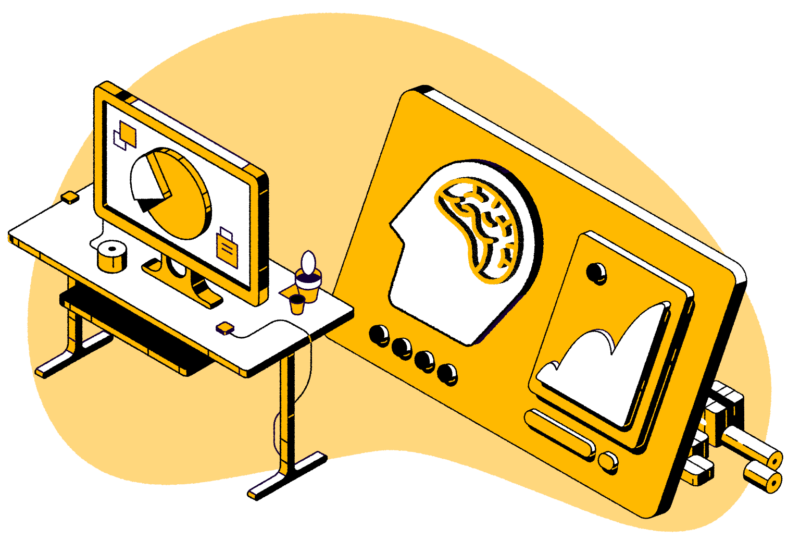Although no cure exists for Alzheimer’s disease, experts are regularly discovering new information about potential causes and treatments for the memory impairment.
For some of the latest developments and advice on how to best manage and live with the disease in the meantime, we asked our experts, “What are the top things caregivers should know about Alzheimer’s?”
Here’s what they want you to know, along with some new discoveries scientists made about Alzheimer’s this year.
Risk factors
Get moving

Lakelyn Eichenberger
“While there are many risk factors that aren’t modifiable, like your age and your genes, there are a lot of things you can do at any age to reduce your risk of Alzheimer’s. One of which is to get moving. Research finds that physical activity and exercise is extremely good for the brain and can reduce the risk of cognitive impairment.”
Read more:
- Sedentary lifestyle habits can increase your risk
- Obesity can increase your risk
- Vitamin D deficiency can increase your risk
- Overly processed foods can increase your risk
- Drinking too much wine can increase your risk
Focus on what you can control

Dr. Sandra Petersen
“Genes, environment and lifestyle can influence the level of risk of any disease, including Alzheimer’s. … People can’t change the genes they inherit from their parents, but they can change things like diet, physical activity and medical care to prevent diseases that may run in the family. Paying attention to those aspects of our lives that we CAN change is the best way to offset other risk factors that we cannot control.”
Read more:
- Women who inherit a certain gene have a higher risk of getting Alzheimer’s than men
- African Americans are at higher risk than other races
Diagnosis
Have important conversations

Lakelyn Eichenberger
“While a diagnosis of Alzheimer’s can be scary, it may also be a relief. I have heard from families and individuals diagnosed with dementia that a diagnosis finally validated and explained what they were experiencing. This then allowed them to move forward and start important conversations about planning and future care needs.”
Get an exam early

Dr. Sandra Petersen
“Early diagnosis of Alzheimer’s disease is critical to quality of life. The diagnosis is made through reviewing your symptoms, medical history, medication history and, generally, collateral interviews with those who know you best such as close friends or family members. A thorough physical exam is really important to rule out other possible causes of symptoms that look similar to Alzheimer’s disease.”
Read more:
Signs and symptoms
Don’t ignore the signs

Lakelyn Eichenberger
“Don’t ignore the warning signs of Alzheimer’s or delay bringing them to the attention of your health care provider. There is a chance that something else could be to blame for dementia-like symptoms such as a vitamin deficiency or infection. If it is dementia, it will allow you to plan and learn to live well with the disease.”
Read more:
- A sudden loss in smell could be a sign of Alzheimer’s
- Decreased grip strength can lead to higher risk for memory issues
See a provider if you have symptoms

Dr. Sandra Petersen
“When warning signs of Alzheimer’s or dementia appear, it’s important that you get a prompt and accurate diagnosis. Early diagnosis helps with getting symptom control medications started when they are most likely to help. Early diagnosis helps with future planning for the individual’s care and quality of life as the disease progresses.”
Read more:
- Can personality changes predict Alzheimer’s and other dementias?
- What behavioral changes can tell us about cognitive decline in older adults
- Giving money away could indicate early Alzheimer’s in older adults
Treatments
Not all treatments involve medication

Lakelyn Eichenberger
“While the treatment options for the symptoms of Alzheimer’s are limited, they can improve quality of life for some individuals. There are also impactful nonpharmacological interventions that can help with dementia-related behaviors such as music therapy or reminiscence therapy.”
Read more:
- Personalized playlists can improve quality of life for those with dementia
- Learning an instrument can benefit seniors with memory loss
- Could your next vacation also help treat dementia?
Some medications have been proven effective

Dr. Sandra Petersen
“Alzheimer’s disease is still not curable, but researchers are getting closer to understanding the pathophysiology of the disease and finding a cure—or at least an effective treatment may be close. Several recent breakthroughs in research seem promising. The latest research with monoclonal antibodies seems to show some efficacy in altering the course of the disease.”
Read more:
Quality of life
Hire professional in-home care

Lakelyn Eichenberger
“Hiring professional in-home care can help to improve the quality of life for someone living with Alzheimer’s disease and their family. The care professional can assist with personal care activities, engage the individual in meaningful activities and give families a much needed break so they can continue to care for their loved ones at home for as long as possible. Connecting with others living with the disease or caregiving can be a great way to find support and connection with those that are having similar experiences.”

Are you looking for Home Care in your area?
Encourage social engagement

Dr. Sandra Petersen
“It is critical to provide activities that promote socialization and engagement with others. A dementia diagnosis should not mean that an individual must forfeit his or her favorite activities and hobbies. Offering social interaction is crucial for people with dementia and Alzheimer’s, along with encouraging exercise and learning opportunities. Challenging the brain with patience and understanding to facilitate success remains a critical aspect of quality of life. Valuing the individual as a person and helping them find purpose in life is paramount. Additionally, observing closely for any physical or emotional discomfort is an important aspect in facilitating quality of life.”
Read more:


